
Dr. Peter Rowell presents a Historical View of his visit to the War Graves of the men and women who fought in European Wars.
The Commonwealth War Graves Commission keeps their memories alive.
Established by Royal Charter in 1917, the Commonwealth War Graves Commission pays tribute to the 1,700,000 men and women of the Commonwealth forces who died in the two world wars. But as Dr. Rowell will show there‘s more to the Commission than cenotaphs and cemeteries. In his talk Dr. Rowell will use pictures, recollections, audio tapes and his own personal impressions as he leads us through this remembrance program concentrating on WW1. It is a fitting tribute to those who served in Europe and the memories of this service.
| Accession Number | Interviewer | presentation to the Salt Spring Historical Society | |
| Date | Otober 13, 2010 | Location | Central Hall |
| Media | Audio CD | mp3 | |
| ID |
 PeterRowel4.001.jpg
PeterRowel4.001.jpg
 PeterRowel4.002.jpg
PeterRowel4.002.jpg
 PeterRowel4.003.jpg
PeterRowel4.003.jpg
 PeterRowel4.004.jpg
PeterRowel4.004.jpg
 PeterRowel4.005.jpg
PeterRowel4.005.jpg
 PeterRowel4.006.jpg
PeterRowel4.006.jpg
 PeterRowel4.007.jpg
PeterRowel4.007.jpg
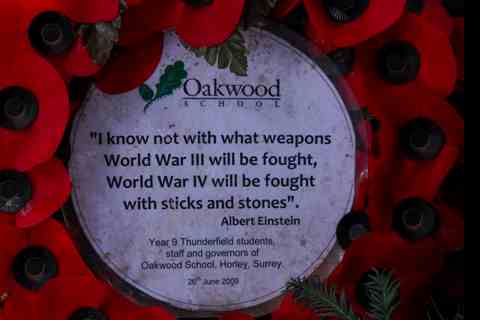 PeterRowel4.008.jpg
PeterRowel4.008.jpg
 PeterRowel4.009.jpg
PeterRowel4.009.jpg
 PeterRowel4.010.jpg
PeterRowel4.010.jpg
 PeterRowel4.011.jpg
PeterRowel4.011.jpg
 PeterRowel4.012.jpg
PeterRowel4.012.jpg
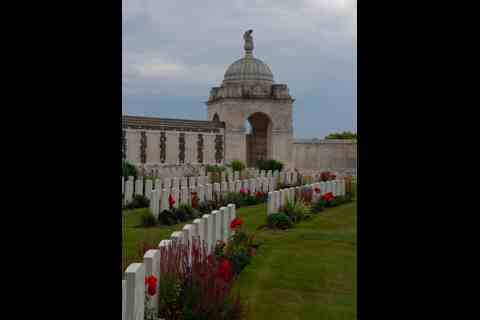 PeterRowel4.013.jpg
PeterRowel4.013.jpg
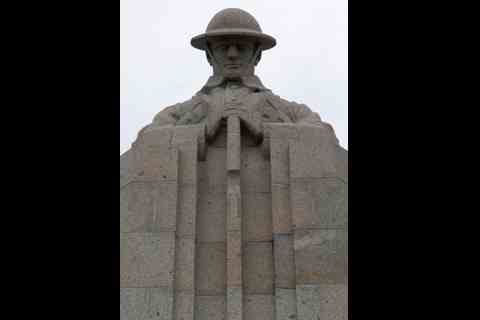 PeterRowel4.014.jpg
PeterRowel4.014.jpg
 PeterRowel4.015.jpg
PeterRowel4.015.jpg
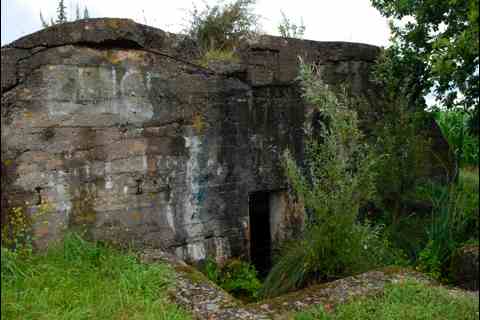 PeterRowel4.016.jpg
PeterRowel4.016.jpg
 PeterRowel4.017.jpg
PeterRowel4.017.jpg
 PeterRowel4.018.jpg
PeterRowel4.018.jpg
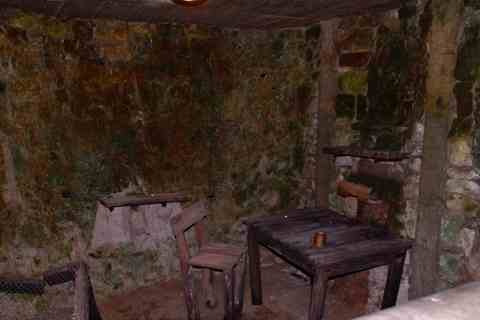 PeterRowel4.019.jpg
PeterRowel4.019.jpg
 PeterRowel4.020.jpg
PeterRowel4.020.jpg
 PeterRowel4.021.jpg
PeterRowel4.021.jpg
 PeterRowel4.022.jpg
PeterRowel4.022.jpg
 PeterRowel4.023.jpg
PeterRowel4.023.jpg
 PeterRowel4.024.jpg
PeterRowel4.024.jpg
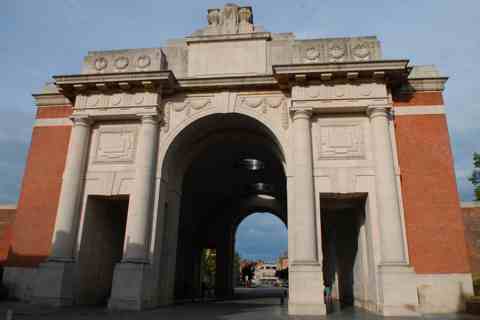 PeterRowel4.025.jpg
PeterRowel4.025.jpg
 PeterRowel4.026.jpg
PeterRowel4.026.jpg
 PeterRowel4.027.jpg
PeterRowel4.027.jpg
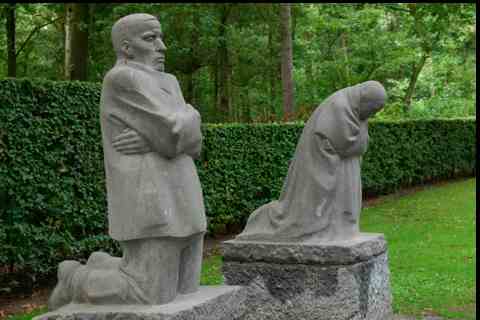 PeterRowel4.028.jpg
PeterRowel4.028.jpg
 PeterRowel4.029.jpg
PeterRowel4.029.jpg
 PeterRowel4.030.jpg
PeterRowel4.030.jpg
 PeterRowel4.031.jpg
PeterRowel4.031.jpg
 PeterRowel4.032.jpg
PeterRowel4.032.jpg
 PeterRowel4.033.jpg
PeterRowel4.033.jpg
 PeterRowel4.034.jpg
PeterRowel4.034.jpg
 PeterRowel4.035.jpg
PeterRowel4.035.jpg
 PeterRowel4.036.jpg
PeterRowel4.036.jpg
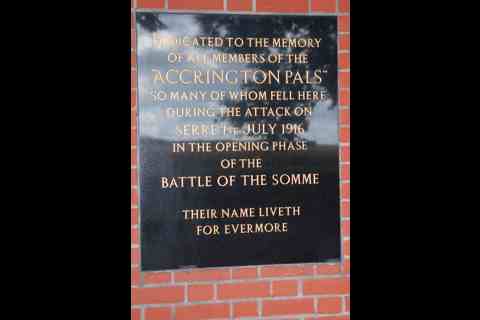 PeterRowel4.037.jpg
PeterRowel4.037.jpg
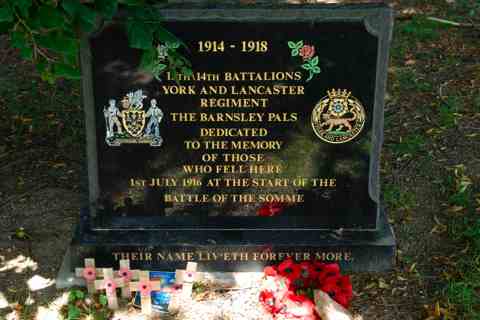 PeterRowel4.038.jpg
PeterRowel4.038.jpg
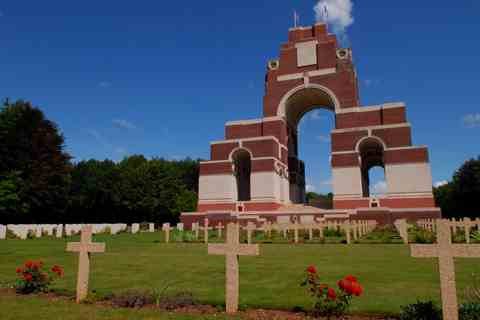 PeterRowel4.039.jpg
PeterRowel4.039.jpg
 PeterRowel4.040.jpg
PeterRowel4.040.jpg
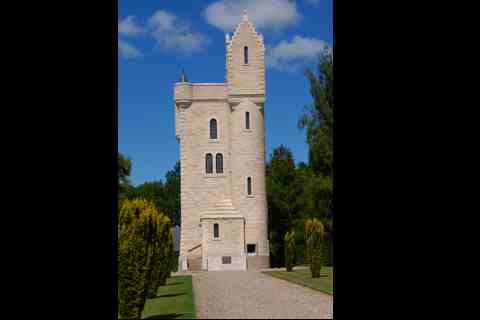 PeterRowel4.041.jpg
PeterRowel4.041.jpg
 PeterRowel4.042.jpg
PeterRowel4.042.jpg
 PeterRowel4.043.jpg
PeterRowel4.043.jpg
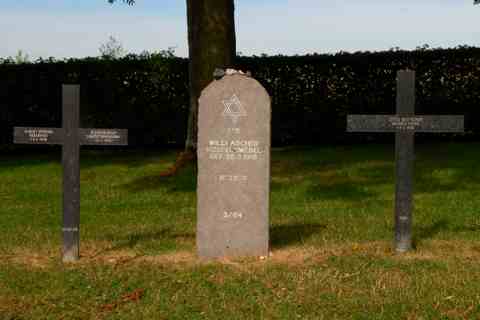 PeterRowel4.044.jpg
PeterRowel4.044.jpg
 PeterRowel4.045.jpg
PeterRowel4.045.jpg
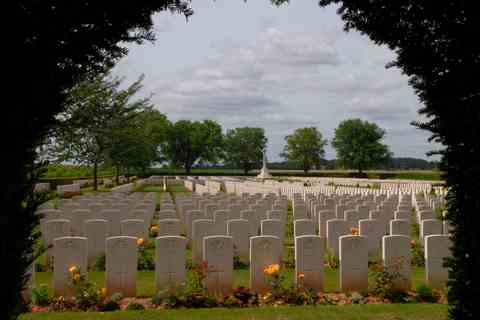 PeterRowel4.046.jpg
PeterRowel4.046.jpg
 PeterRowel4.047.jpg
PeterRowel4.047.jpg
 PeterRowel4.048.jpg
PeterRowel4.048.jpg
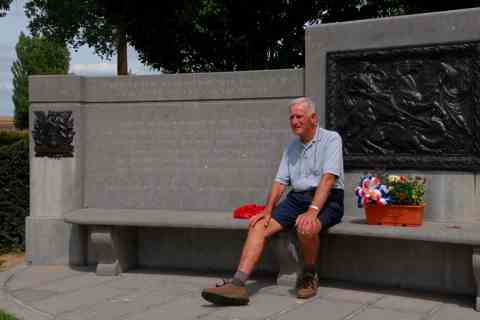 PeterRowel4.049.jpg
PeterRowel4.049.jpg
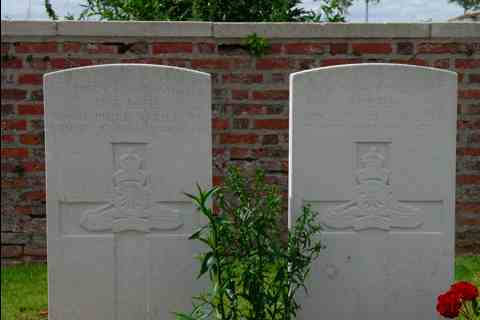 PeterRowel4.050.jpg
PeterRowel4.050.jpg
 PeterRowel4.051.jpg
PeterRowel4.051.jpg
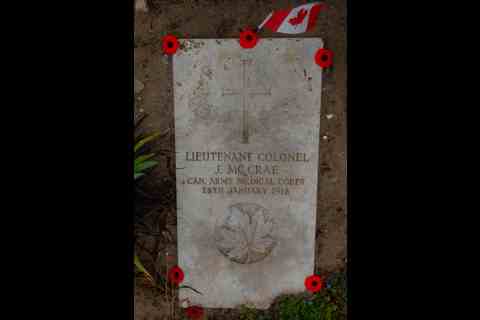 PeterRowel4.052.jpg
PeterRowel4.052.jpg
 PeterRowel4.053.jpg
PeterRowel4.053.jpg
 PeterRowel4.054.jpg
PeterRowel4.054.jpg
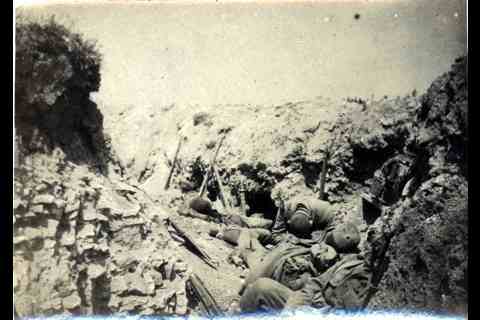 PeterRowel4.055.jpg
PeterRowel4.055.jpg
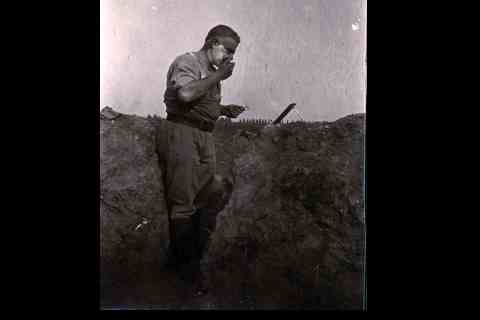 PeterRowel4.056.jpg
PeterRowel4.056.jpg
 PeterRowel4.057.jpg
PeterRowel4.057.jpg
 PeterRowel4.058.jpg
PeterRowel4.058.jpg
 PeterRowel4.059.jpg
PeterRowel4.059.jpg
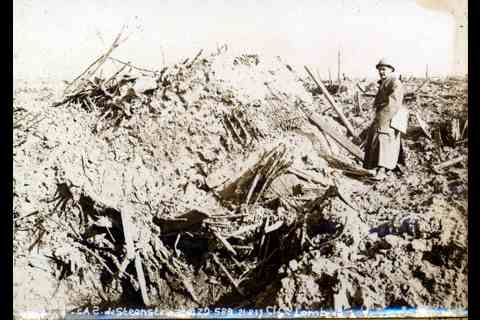 PeterRowel4.070.jpg
PeterRowel4.070.jpg
 PeterRowel4.071.jpg
PeterRowel4.071.jpg
 PeterRowel4.072.jpg
PeterRowel4.072.jpg
 PeterRowel4.073.jpg
PeterRowel4.073.jpg
 PeterRowel4.074.jpg
PeterRowel4.074.jpg
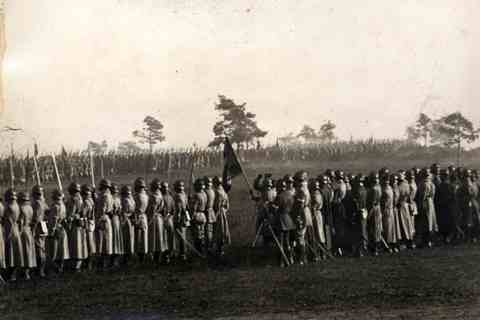 PeterRowel4.075.jpg
PeterRowel4.075.jpg
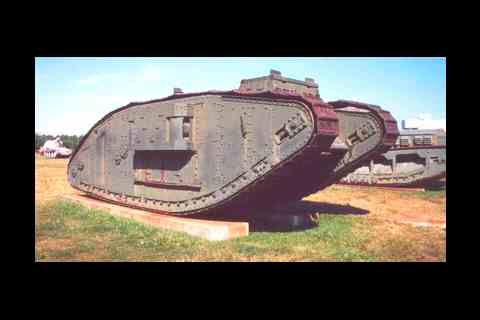 PeterRowel4.076.jpg
PeterRowel4.076.jpg
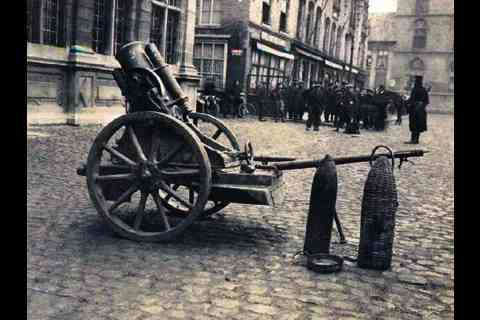 PeterRowel4.077.jpg
PeterRowel4.077.jpg
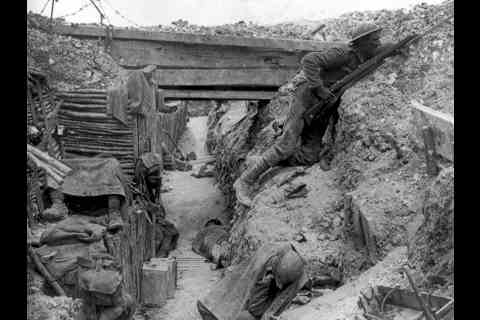 PeterRowel4.078.jpg
PeterRowel4.078.jpg
 PeterRowel4.079.jpg
PeterRowel4.079.jpg
 PeterRowel4.070.jpg
PeterRowel4.070.jpg
 PeterRowel4.071.jpg
PeterRowel4.071.jpg
 PeterRowel4.072.jpg
PeterRowel4.072.jpg
 PeterRowel4.073.jpg
PeterRowel4.073.jpg
 PeterRowel4.074.jpg
PeterRowel4.074.jpg
 PeterRowel4.075.jpg
PeterRowel4.075.jpg
 PeterRowel4.076.jpg
PeterRowel4.076.jpg
 PeterRowel4.077.jpg
PeterRowel4.077.jpg
 PeterRowel4.078.jpg
PeterRowel4.078.jpg
 PeterRowel4.079.jpg
PeterRowel4.079.jpg
 PeterRowel4.080.jpg
PeterRowel4.080.jpg
 PeterRowel4.081.jpg
PeterRowel4.081.jpg
 PeterRowel4.082.jpg
PeterRowel4.082.jpg
 PeterRowel4.083.jpg
PeterRowel4.083.jpg
 PeterRowel4.084.jpg
PeterRowel4.084.jpg
 PeterRowel4.085.jpg
PeterRowel4.085.jpg
 PeterRowel4.086.jpg
PeterRowel4.086.jpg
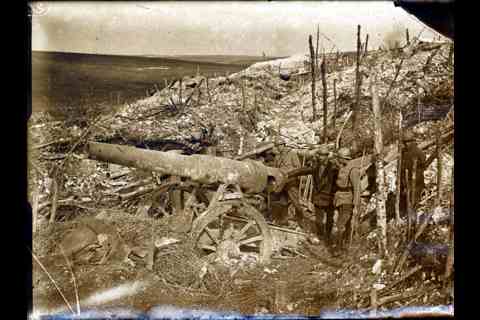 PeterRowel4.087.jpg
PeterRowel4.087.jpg
 PeterRowel4.088.jpg
PeterRowel4.088.jpg
 PeterRowel4.089.jpg
PeterRowel4.089.jpg
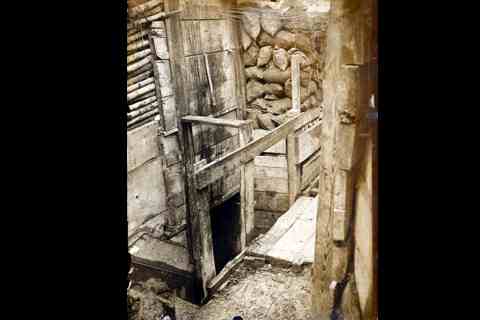 PeterRowel4.090.jpg
PeterRowel4.090.jpg
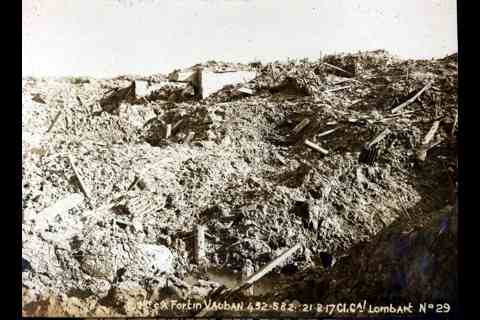 PeterRowel4.091.jpg
PeterRowel4.091.jpg
 PeterRowel4.092.jpg
PeterRowel4.092.jpg
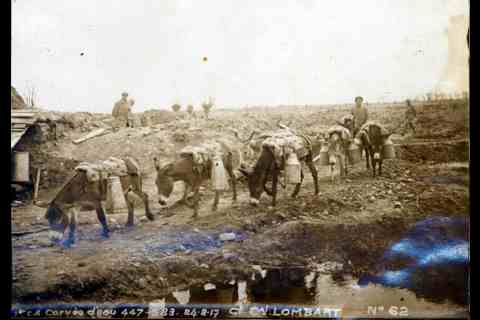 PeterRowel4.093.jpg
PeterRowel4.093.jpg
 PeterRowel4.094.jpg
PeterRowel4.094.jpg
 PeterRowel4.095.jpg
PeterRowel4.095.jpg
 PeterRowel4.096.jpg
PeterRowel4.096.jpg
 PeterRowel4.097.jpg
PeterRowel4.097.jpg
 PeterRowel4.098.jpg
PeterRowel4.098.jpg
 PeterRowel4.099.jpg
PeterRowel4.099.jpg
 PeterRowel4.100.jpg
PeterRowel4.100.jpg
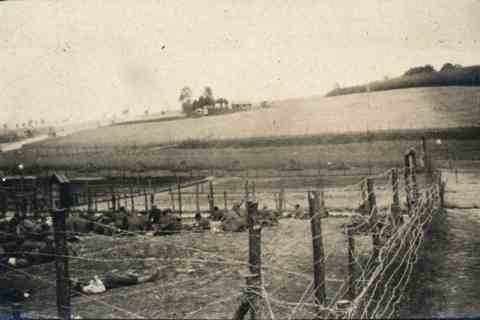 PeterRowel4.101.jpg
PeterRowel4.101.jpg
 PeterRowel4.102.jpg
PeterRowel4.102.jpg
 PeterRowel4.103.jpg
PeterRowel4.103.jpg
 PeterRowel4.104.jpg
PeterRowel4.104.jpg
 PeterRowel4.105.jpg
PeterRowel4.105.jpg
 PeterRowel4.106.jpg
PeterRowel4.106.jpg
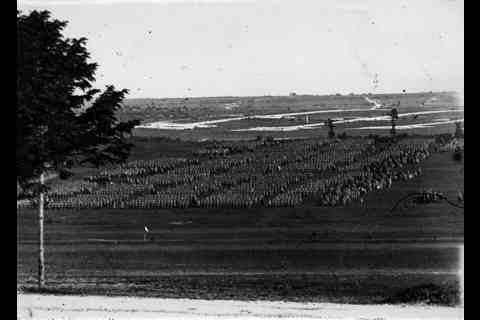 PeterRowel4.107.jpg
PeterRowel4.107.jpg
 PeterRowel4.108.jpg
PeterRowel4.108.jpg
 PeterRowel4.109.jpg
PeterRowel4.109.jpg
 PeterRowel4.110.jpg
PeterRowel4.110.jpg
242_Rowell_WW1-Veterans_2010.mp3
otter.ai
18.04.2023
no
Unknown Speaker 0:22
What is this record
Unknown Speaker 0:26
SBI
Speaker 1 0:29
website it's no worry about just records everything you say so don't swear on your records
Unknown Speaker 0:59
how you doing
Unknown Speaker 1:31
right Right
Unknown Speaker 2:25
right your money Back
Speaker 2 3:43
Ready to turn around
Unknown Speaker 3:55
she's picking up
Unknown Speaker 4:30
you have to do the math
Unknown Speaker 4:58
down below where you want
Unknown Speaker 5:19
to be had to go get the keys that's all
Unknown Speaker 6:08
in one of the little bags
Unknown Speaker 6:14
ya
Unknown Speaker 6:42
you got this chest
Unknown Speaker 6:52
business
Unknown Speaker 7:17
yeah that's much better that's
Speaker 1 7:19
turned off for now seeing the batteries right on the end of this little thing here slides back
Unknown Speaker 7:24
okay good I'm taking a
Unknown Speaker 7:39
break
Unknown Speaker 7:55
readers
Unknown Speaker 8:01
are short business meetings
Unknown Speaker 8:39
takes a little while
Unknown Speaker 8:56
already
Unknown Speaker 9:15
there you go I guess maybe we probably could go
Unknown Speaker 9:59
up Let's test this out
Unknown Speaker 10:21
you nothing worse
Unknown Speaker 10:42
than getting rejected as an actor very often
Unknown Speaker 11:09
right
Speaker 3 11:44
should charge again
Unknown Speaker 12:07
Right I'm waiting for you to take over Murray
Unknown Speaker 13:42
control our sources
Unknown Speaker 13:56
the relationship
Unknown Speaker 14:42
apparently
Unknown Speaker 15:00
All right prior
Unknown Speaker 15:46
you here
Unknown Speaker 15:55
today name is dr
Speaker 2 16:49
dre well
Unknown Speaker 17:17
it
Unknown Speaker 17:25
going you used
Unknown Speaker 17:42
a long cable that goes
Unknown Speaker 18:17
going On
Unknown Speaker 18:55
guys all right
Unknown Speaker 19:34
should play now
Unknown Speaker 19:59
Hey
Speaker 4 20:28
so again the big projects we're doing we standing on top of the Federal Reserve and waving to us
Unknown Speaker 21:23
friendzone
Unknown Speaker 22:25
Good afternoon you know exactly where it is
Unknown Speaker 22:39
already already
Speaker 1 22:57
turns out good afternoon. Welcome to our our meeting czar October meeting I would like to read the minutes of the last minute meeting place. We started at two o'clock there was no new correspondence, the financial statement was posted. It shows a good profit in all areas of our operations, archives, historical society and so on. We are looking for volunteers to help us in either the archives are in some of our programs. So we'd be interested in helping us when Barack Obama speaks a little later on, we may have needed some people with trucks running backs or deep freezes. I would like to in the minutes that mentioned that time, right an honorary member passed away the morning of that meeting, that his enthusiasm for history will be missed. And we send our condolences to the family. Tom was a longtime member of our society. He was past president. He was in charge of the signage program which you see around Ganges a little plaques that are in most of the buildings and have historical significance. So he did that. He also was very active in the community in a number of areas. And we're very much at this time as part of our society. So I know you join me in saying when I sent the Historical Society condolences to his wife, Irene that represented all of our points of view. The speaker of the day, on September was Sergeant, Staff Sergeant Danny Wallace. We talked about a general history of the RCMP and some policing issues on psaltery Island. At the end, we had tea and coffee. So those are the minutes of the last meeting. Now we can start a new meeting correspondence as the last one no correspondence today. Financial Statement Duncan is away but he did send a statement saying that are statements of this month is the same as last month because there was no bank or credit union statements came out during the last four weeks, it shows a balance of about $7,000 in the are in the Historical Society accounts. As Parvati asked to come forward and give a quick overview of the archives and where we are with the archives at the present time.
Speaker 5 25:30
Thank you. So we are at the stage right now, where we're looking at our move, the new library will come on stream, but we have to get out while the library is being built. And we're going to be in a rather odd position of having to pack things up. So we won't have everything available. Things will be available online, Frank has digitized a tremendous amount of what we've got in there. So it's not as though we won't be completely available. But a lot of our material will be put on shelves and be out of the way. We're going to try to keep the drift woods near the front so that we can have those available for people that want to look through them. That seems to be that and and our vertical file with clipping seemed to be what people want to look at the most, we're going to be in the basement of Saltspring elementary around the very back near where they closed off canal road. And that's where we'll be housed. We'll have enough room there to do some scanning as well as storing things. We're also going to have a room at Fernwood Elementary where we're going to be able to put our things in the freezer. Now that sounds weird, I know. But let me explain why the library has silverfish. And there it's built on the right on dirt. There's no cement foundation. So of course we're there's moisture there silverfish, and much of our collection has silverfish in it so that when people go in to take something out, they get other things jumping out out, and which is not too pleasant. We don't feel good about taking silver fish into any school. So what we need to do is kill the little beasts off. And what you have to do is put them in a freezer for two weeks, take them out and put them back in for another two weeks to kill off the next batch of eggs and you break the cycle. And that's supposed to be the end of them, we'll back in the boxes first to try to get most of them, then freeze them, take them out, freeze them again, and then put them on the shelves. So you can see we have a huge job ahead of us. And we will be asking to see if there are any volunteers that would like to help with that particular job. But we're excited because the new situation that we're going to be in on the second floor of the library is going to be wonderful. As we digitize our collection, we don't need quite as much room for all of the things to be stored because we can put them further away and stack them up higher and have access to them in a different way. I think we're going to have something we already have something that's quite amazing. And it's just going to get to be more and more amazing. We're doing lots of digitization right now we're doing the drift woods, I think we're up to 1968. Now, set, right. And eventually we'll have all of them online so that nobody will have to come to the building, you'll just be able to go on to the computer and find whatever you want. So this modern age really does make a difference. Frank was showing me this morning, three different museums, our local museums, the one at the farmers Institute, the cushion Cove one and the Bob Baker Minh museum. And we got all of those artifacts digitized. So now we're at a point where we're becoming a digital museum as well. And that's the wave of the future for museums. So exciting things happening and little little Saltspring with our historical society in the archives. So stay tuned, we may be asking for help a little further on.
Speaker 1 29:17
That's right. And we also are doing some radio programs. And Barb was on the radio awhile ago. And we've been asked to continue that to provide some radio programs from the local radio station. So there was a meeting today to see if they could come up with a program using some of our audio clips of some of the people we have interviewed in the past and bringing them forward and doing a community based program. I think that's quite exciting too. And I'd like to thank those who did volunteer to help us the fall fair resume supervision as usual. It worked out well. And we had a large number of people go through the museum and our people were well respected for their knowledge of the area. November's me is Ken McKenzie next? In November, he'll be talking on the Navy League of Canada and its links to Saltspring Island. In January, the Lions Club will be presenting the program they'll bring in some of the original Lion Pub members plus a panel discussion and they're going to give us an overview of their work and, and their history on the island. And if you have been on soltrain for any length of time, you know that the lions are actively involved and have been over the years in numerous major projects on Saltspring Island. Membership. bargu, can you help me we have an idea how many members do we have today? 3132 33. You forgot? Okay. Well, we have more than 31. Announcements. There aren't any at the present time. For those people who stay at the end for tea and coffee. It's provided today by Donna BB, Austin empty, and they will be served up at the front at the end of the presentation. So that is the end of our business meeting unless there's any new business. Don't do business but looking for freezer? Oh, yes, the freezer. If you mentioned her Barb mentioned freezers, if you have a freezer, you want to get rid of or want us to store it for you. Let us know. And we'll see what we can work out it would be for up to two years. So it's a long term lease. We have one we can have their ERC mirrors our freezer. Thanks. That's good. People are always either wanting to get rid of them or find them. So those that get rid of them are smiling and those that find them they've got a real deal. So there we are sort of like a boat, you know, you're happy when you buy it, and you're happy when you sell it. Thanks very much. Appreciate that. We'll start our program now. I think Peter is ready to go. Peter row is Dr. Rella, and has been on a long term Island. Islander is daughter's went to school here. He's practiced on Saltspring. And as a very good community member. He recently went to Europe and did a trip. And he ended up finding some things of interest that probably when he went in, he wasn't necessarily sure that he was going to do that different part of his trip. But he came back. And he found that he had a good understanding of some of the problems that the troops faced in World War One and also was able to visit some of the grave sites of the World War One veterans and other veterans. And he made a slide presentation and a talk. And he's going to share that with us today. We hope to do it glass next month for Remembrance Day. But we're having remembrance day to day can have it every day, as far as I'm concerned. And Peter is going to give us a presentation and will be available for questions. And at the end. Any personal discussions you would like to have one. introduce you now to Dr. Peter, Peter.
Speaker 3 33:10
Thank you, Bob. If anyone can't hear or if I'm shouting too loud, just sing out and we'll make the adjustments. Today I'm really very disappointed and saddened at the Historical Society for all that wisdom. Not arranging a wet miserable afternoon instead of a gorgeous sunny afternoon, when most of us should be in our gardens, or at the golf course. I'm sure most of you at some time or other have wanted to do something different or visit some special place before it's too late. Well, in the summer of 2009 last year, I had three goals that I wanted to try and achieve. Number one, I wanted to attend a live cricket match in England, between Australia and England, at the famous cricket ground in Lourdes and number two, I wanted to do a World War One battlefield tour and visit especially to some where my father had been wounded. And number three, I wanted to do a memorabilia trip in Britain with my three daughters visit Sussex, new castle and the Hebrides where we'd all lived. And lo and behold, I was able to achieve all three in the space of a month. So today we're going to talk about part of that that's the World War One battlefield tour. The presentation I will give will be divided into three parts. The first part He's going to be a very brief summary of the war, which I think is necessary. I think it's necessary that you should hear it so that you can partly appreciate the, the terrible conditions that they went through, and the carnage on both sides. And part two will be a picture show put on by Frank and his electronics. Without Frank, we have no show. And part three will be an extraordinary audio dialogue between a Brit and a German veterans. Describing the amazing Christmas truce that took place in Christmas Eve 1914. When troops from both sides just spontaneously climbed out of that trenches and walked towards each other and shook shook has exchanged drinks. They actually cut each other's hair and shaved each other and had a general cameraderie before being ordered back into the trenches by the top brass, and that this must never happen again. And the killing had to recommence. To do a World War One battlefield tour from the British and Canadian aspects. There's two areas to visit in the north, in Belgium of Flanders Fields, which includes the Eapp salient and Passchendaele. And further south in France, is the sum and Viman. The two of us who did this trip we paced ourselves and eat for the northern tour, and Rs for the southern tour. And we decided to use to private guides, instead of the usual small mini bus tours. So to get out of the war, the spark that ignited the terrible conflict, of course, was the assassination of the Austrian archduke in Sarajevo by a Serb. So the Austrians issued an ultimatum to Serbia, tantamount to a declaration of war, with full German backing. And the Russians, of course, hovering in the wings had great ties with Serbia, so they were not going to let Austria destroy Serbia. So they joined in the fray and then lost the Belgian problem. Belgians neutrality, of course, had been guaranteed in a treaty of 1839, by Britain, France and Germany. But each of these countries fully recognized in the event of war that Belgium had a very strategic position, you can actually see it on this map. It's not supports giving easy access to Britain by Germany, on both Germany and France, recognizing that it afforded an easy access to France, bypassing the very, very well fortified Franco German border. So in 1914, the German Schlieffen Plan was unleashed. The German forces moved through Belgium, in northern France, to meet up with its southern armies coming up through Alsace to make a massive pincer movement aiming to take Paris and ending the war and six weeks.
Speaker 3 39:21
Facing 300,000 Germans that nones was the small British army of 80,000. And the French and Belgians fielded one and a half million. Unlike most of these military, grandiose plans, it ran out of steam. Even though the Germans reached 30 miles from Paris, before they were halted, and slowly driven back. battle lines were established from our stand in the north, to Switzer In the south, this one look to bulges into the battle lines what that dotted line I can hit. That is where the two armies decided to take their trenches. And two barges post into German territory, one at the deep salient in the north and in the south for John
Unknown Speaker 40:45
think I'll just try and switch this later
Speaker 3 40:55
so far, the casualty rates in the short space of time the Brits 80,000 That is their small army was wiped out. France and Belgium lost 250,000 And Germany 130,000 and trench warfare was born. The trenches on both sides were similar. There were three lines of trenches and the made them in a zigzag fashion. There was the front line, and 50 yards behind the front line was the supporting line and 100 line 100 yards behind that was the reserve line. And there were vertical trenches connecting each of these three lines so troops could be funneled forward and backwards. The defense of E became a symbol of defiance by the allies. The town was reduced to rubble, giving it almost like a Russia appearance. But it had to be held at all costs. So that was all in 1914 1915. At the Second Battle of Eapp chlorine gas was first used in warfare by Germany. And the newly formed Canadian Corps distinguished itself by holding the line in spite of the gas and they won for Victoria Crosses. So we came to 1916. And here the Germans decided to get rid of France, they decided to wage a war of attrition against the French to bleed them white. And this was to be in good done. But once again, the plan failed because the casualty rates on both sides were similar. The French lost 350,000 And the Germans 300,000. Now partly to relieve the friendship for done, a combined British and French major offensive was launched at the song some as a 30 minute stretch between a man and Perone.
Speaker 3 43:25
General Hank, the English British commander Use kitchen us new army of mainly untried, unseasoned young soldiers kitchenettes campaign throughout the Commonwealth and England had resulted in 30,000 volunteers a day, 1 million in six months. And they formed as an inducement the powers battalions, which was a disaster, they induced them to to sign up and said, we'll keep you all together. Families, brothers, people from the same villages. So in Britain itself, whole villages had their young men completely wiped out. And the slaughter of course came from artillery, machine guns, and barbed wire, which are all the products of the new industrialized warfare. So July the first first day of the sum, was the blackest day in military history in Britain. The casualty rates were more than 60,000 On the first day, which was eight times that of the Battle of Waterloo. And more than all the British losses in the power, Crimean War and Korean War combined. So we come to 1917 and this showed a continuation of general Hague's patterns of attrition again As the Germans, including the terrible mud of Passchendaele, and the brilliant tactical battle of Vimy Ridge by the Canadians, at a cost of 11,000 casualties, including three and a half 1000 dead, which actually was minimal compared with 240,000 Passchendaele. So finally, we come to 1918. And Germany then realized that this was to be a make it or break it year be mainly because of the arrival of newly formed American troops. They were soon to be battle tried. So the Germans launched a massive offensive called Operation Michael. And this was spearheaded by newly formed storm trooper units, which was equivalent to our commandos. And they nearly succeeded, once again getting to within 50 miles of Paris. But we're once again planted and slowly slowly pushed back to the famous invincible Hindenburg Line. But by now, the allies were really top quality professional soldiers. And they broke through on many occasions. And it's of interest to read that most of these breakthroughs were spearheaded by either Australian or Canadian troops because of their reliability. So Germany had great social unrest at home. And the German navy was in an open mutiny. They refused to go to see an A death battle with the British Navy. So they sued for armistice, which was granted on November the 11th 1918. And this infuriated the Americans who felt it was very, very premature to heart things when the German army was actually in full flight, but still on German soil, still on Belgian soil, sorry. But the Brits and the French were exhausted and the killing had to stop. Many in the German army refused to accept the fact that they were beaten in the field which they were the most notable of course, being Corporal Adolf Hitler. He was awarded the Iron Cross for bravery at the first battle of it. So what had four years of industrialized warfare cost in human casualties, and these are deaths. Germany three and a half million, Russia two and a half million, France 2 million Britain under 10 point 1 million Italy 500,000 USA 125,000. The last three months of the war had cost the Brits 80,000 dead. And the Brits also had the gall to shoot 312 have their own soldiers for desertion. So finally, as an epilogue, and with these casualty figures, how otherwise can we but accuse the politicians and top military brass on both sides of extreme incompetence in first of all allowing war to evolve from possibly solvable political problems and then subjecting its soldiers to live in appalling trench conditions
Unknown Speaker 48:57
of mud ruts and lice and then send them over the top to face shells exploding above them raining down red hot steel bearings walking towards machine guns and barbed wire with high explosive shells tearing them apart.
Speaker 3 49:25
So perhaps the phrase noted in many, many books on the war, two soldiers were like teams of lions, led by donkeys is not too inaccurate.
Speaker 3 49:41
Now, with Frank's great help, we're going to look at some pictures. These pictures were taken by my traveling companion which Aflac the first one. The first one is a Canadian hero of course Colonel John McCrae. He was he was a Canadian surgeon. And this plaque is, of course, the plaque of his famous poem in Flanders Field. It's in his original handwriting. And it's on his ethics form bunker station, which we'll see next. This is a mash type of unit. Concrete, simply because it was continually shelled. It was only 100 yards from the German line. And this is what Colin McRae did on his work. And most of these little dressing stations, as they were called, had a small cemetery around them because many of the soldiers didn't make it. And we showed this gravestone simply because it's the gravestone of private Vijay Strudwick, aged 15. The next one, Richard and I discovered purely by accident, it's called the ramparts cemetery in Egypt. Our first night there we thought, Let's stretch our legs and see what the town's got to offer. So we found this park and we're very surprised to find this beautiful, little peaceful cemetery near the canal. And funnily enough, last week, I was just skimming through a little brochure on apron and showed what this was like in 1919. And it was terrible. It was a sea of mud. Hundreds of little wooden crosses nailed together. And the background was the destroyed city of Egypt. This as a German cemetery at a landmark landmark was a big, big part of the landmark. The German cemeteries are noted for the somberness the stones are either black crosses or flat black gravestones. And they're always surrounded by oak trees which are supposed to designate strength. in length, a marker of 50,000 Germans buried. These are little wreaths that we found in Lanka Mark has some very interesting wording in them. The other thing that's interesting about them is they were put there by English school children.
Speaker 3 53:00
These are Canadian trenches at sanctuary wood, or hill 62, which is near Passchendaele. Princess Patricia's lady infantry occupied these trenches in World War One. The next one shows shelf holds, its secretary would still there. This is a Canadian memorial at sanctuary wood. And we show it partly to show the spire of Passchendaele church in the background
Speaker 3 53:46
this is tiny cemetery it's the largest Commonwealth cemetery in the world. So funny Lane timecard and it was named by the Northumberland Fusiliers as they were advancing towards black painted German machine gun pillboxes. One of them remarked that it just look like the black painted fisherman's cottages at the month of the time. So we have timecard there are 12,000 graves here. But the real wall, which is what we're looking at now contains the names of 35,000 Brits Canadians, Aussies New Zealanders who are missing mainly from Passchendaele. It's amazing the number of soldiers who are actually missing this is a very impressive Canadian monument. We only have this picture of it even though Richard took many, many pictures of it. It's called the brooding Soldier and it's Canadian memorial at Vancouver corner at the outskirts of Egypt
Speaker 3 55:12
This is an Australian memorial at the Battle of from now and it's called covers. And it shows Sergeant Simon Fraser Victoria Cross picking up one of his mates from no man's land. Simon Fraser was killed two weeks after that this is a German blockhouse where Adolf Hitler was faced
Speaker 3 55:52
and of course, for Canadians, this is the icing on the cake. This isn't for me. We took many, many pictures of me but we only have two to show you. This one. And then the next one is the crest of Vinnie looking out east to the plane where the Germans retreated. The Canadian government spent $20 million recently restoring Vinnie Ridge these next two pictures aren't very easy to see, but they are the venue tunnels. And these are the officers quarters in the very tunnels. Now what why tunnels? Well, the Canadians were very lucky to have generals being in curry, who were too intelligent and compassionate generals, which seemed to be pretty rare in those days. And they were not going to let the troops be slotted like they were at some an advisor done. So they thought let's take tunnels under no man's land so that our troops can almost get onto the German trenches before they're detected. So they employ New Zealand miners, and they don't leave tunnels. That's another one of the tunnels.
Unknown Speaker 57:29
These are Canadian trenches and filthy rich
Speaker 3 57:39
This is a cross that actually marks the site of the Christmas truce, which you're going to hear about when we're finished with our pictures
Speaker 3 57:54
this is the island, the Ireland p star. It's a memorial to the Ulster regiment which at great cost, successfully took the so called Schwaben redoubt cm for rage on the first day of the song. It was one of the very very few objectives that were actually taking on that first day. This is called the pool of peace. It's essentially a mind crater that was exploded. And they say that the explosion of sound could be heard in London
Speaker 3 58:42
this is the Mellon gate. It's a major memorial in Egypt. It's 250 4000 missing from the United Kingdom and Commonwealth and all the names are engraved on the walls inside and there are registration books, naming everyone and their various respective regiments. Every day, at eight o'clock in the evening, the trumpet does sound the last post and then there is a very very short that a ceremony and service. This is the men engaged at night
Speaker 3 59:36
this is another German War Cemetery at flat slow a big big battle at Gladstone and this is called the grieving parents. Cathy calm Collins was a very famous German artist and sculptor and they are mourning the loss of their only son Peter kilobits Who was killed at the kingdom of God or the slaughter of the innocents. It was a regiment of university students. And apparently they linked arms and crossed open ground singing tuition and Uber allies. And we're obviously mowed down by the Allied machine guns.
Speaker 3 1:00:29
This is not true down to LA, right. It's near the knee. And it's the biggest French Memorial and cemetery in the world. And there are 120,000 graves Yeah.
Speaker 3 1:00:51
This is cavalry Rouge cemetery. We shown this one simply because the Canadian unknown soldier who lives in Ottawa was taken from this cemetery.
Speaker 3 1:01:08
This is a cave in ours. There was a major battle that Eros and the eyes held the city. And they found underneath arrows that there were large caves. So just like we didn't think we thought let's build tunnels from these caves underneath no man's land, and so we can get our soldiers closer to the German lines. So what they did was they packed 20,000 soldiers into these caves and tunnels two days before the battle.
Unknown Speaker 1:01:50
You can imagine the misery cold and damp, the stench of urine and feces. And they were terrified. And of course, in those days, the soldiers fear was treated with tubs of rum frequently.
Speaker 3 1:02:12
And then one hour before the battle started. The soldiers were ordered to take off their great coats, in case it would impede them in the battle. And yet outside it was minus 10 degrees centigrade, and it was snowing heavily. So many of these soldiers died from hypothermia.
Speaker 3 1:02:51
This is, this is the our trench cemetery. It's a very, very small cemetery just a few grades. But it illustrates the philosophy of the British in that they tried to bury their dead actually where they fell.
Speaker 3 1:03:12
This is a common sight in Belgium. Old World War One shells dug out by farmers and just laying up the side of the road. This one simply shows a military cemetery in the middle of a wheat field.
Speaker 3 1:03:36
These are the burial grounds of the PALS battalions, from Sheffield, Barnsley and Accrington and the next three slides are just plaques commemorating the PALS battalions.
Speaker 3 1:04:02
This was the CFO Memorial. There was a major battle for fearful rage, with very very heavy casualties. It's the largest British memorial in the world. And there are 75,000 names engraved on the inside of soldiers missing once again, simply missing. This is you have to pull from a distance this is the Ulster teller memorial commemorating the Irish at the Battle of ser ser II. This is Newfoundland Park commemorating the Battle of Bowman Hamel on the first day of the song The new fee have been flooded at Gallipoli, but on this day, they could not cope with the heavy artillery and machine guns of the Germans 800 started in the battle and 70 survived these are some shell holes and trenches of the area
Speaker 3 1:05:31
this is a fry cart, fry cod German cemetery. It's of interest because it shows two German crosses and the Jewish gravestone between them. And you may notice one or two little stones on top of the gravestone and apparently the custom is if a Jew visits a cemetery, and a Jewish gravestones that they could want to the stones of memory on top of the gravestone.
Unknown Speaker 1:06:04
This is the Welsh memorial at Mametz wood. The Welsh were ordered to take Mametz wood, which was full of German machine guns. It was a five day battle.
Speaker 3 1:06:18
They had extremely poor artillery support, often hitting their own soldier and it was simply five days of fierce hand to hand fighting. The Welsh suffered 4000 casualties, including seven of their 12 commanding officers. Just a brief word about the officer carnage in World War One. The junior officers in the first half of the war all came from English public schools. But after two years of fighting the wind on left, they were all killed. So the second half of the wall, the officers were mainly appointed from the ranks. So we had cotton's becoming lieutenants and sergeants becoming captains
Speaker 3 1:07:14
This is the London setup tree at high wood and it's full of East India cavalry men. Once again, in 70, the the East Indian Cavalry Regiment was ordered to take high wood, which was full of German machine guns. So we had horses and Lance's against machine guns, just a little bit like the chart of the Light Brigade Balaklava. This is Delville Wood, or as the South Africans called it devils wood. It's a South African memorial and museum. South Africans were ordered to take Delvin wood and once again just like the Welsh they had five days of very very severe hand to hand fighting up to 3000 South Africans 750 survived this again is the memorial This is the time side memorial at the bottom of libre sell to the Tyneside, Irish Scottish Northumberland Fusiliers so my friend Richard said I was highly qualified to sit there
Speaker 3 1:08:50
to gravestones are E Lee and G brothers you think? No it was actually father and son
Speaker 3 1:09:09
so we ended as we began with Colonel McCray he was wounded and was transferred to Wimmera Women's Hospital was near Kelly. It was one of the biggest military hospitals where soldiers went to get treatment before being shipped over to England. Unfortunately, John McCrae, having survived the war, develop pneumonia. And whereas today we'll give him a bunch of pills or a few injections and cure him. He died. And the next one shows John McRae's gravestone at Wimmera
Speaker 3 1:10:00
So those are the pictures. Now, with Frank's great assistance, and I hope you can hear what you're going to be shown next. It's a very, very impressive and emotional dialogue between a German and a Brit
Speaker 4 1:10:19
hospital. But once it wasn't raining, as we looked over the top row from sandbags, we could easily see the German trench and barbed wire 100 yards away across the slimy churned up mirage in no man's land and not able to lay out when I shouted to our enemies that we didn't wish to shoot, and that we made a racist. I said, I would come from my side, and we could speak together. There was silence, then I felt it was more inviting thing. And it's pretty shocking. No think pay the man out on my side. And so we came together, and we shook hands a bit cautiously. When dawn broke, we saw several Germans standing on top of their parapet and waving to us. We also picked our ways of Ammar, and in no man's land, disregarding the dictates of Imperial systems, propaganda was free press. We saw those shook hands with each other the controversial receives, everybody seemed a bit shy. Dr. SIBO remembers a particular request for one of our officers made. That lieutenant said there was a problem had been killed. To bury this man here. Why not? Of course you can do it. And so that brought the man in and bring all the hanging fruit upon the man and together pray the Lord's Prayer father grew up seeing them in Our Father which art in heaven, hallowed be thy name. Last expanding we spent all day in no man's land with a person the second goal is to provide a Scottish music to this extraordinary Christmas one that has grown as a footballer so there's a match with the drama each other as workers need to be saved. And on the other side, the German zoning has shaped the English soldiers it loves laughter and joy because as you've never had been a disturbance between the feelings of these 1000s of young men
Speaker 4 1:13:43
was singing again because something we all knew. So we all must learn
Speaker 4 1:14:05
began to sing louder and louder and all at once he goes like that how out of the trenches through the sky
Speaker 4 1:14:41
this was the thing that you liked it gave me peace for that the soul of unite the main device of 2000 years back, but not here for four years, millions of years
Unknown Speaker 1:15:25
now we are
Unknown Speaker 1:15:34
Thanks, Frank
Unknown Speaker 1:15:47
questions or comments? How many people how many children died?
Speaker 3 1:16:01
Well, if you remember I said 3.5 million from I think 3.5 million Germans 2.5 million, sorry, 1.5 million English and its empire, France, 3 million Americans 125,000 Italians 500,000 These were deaths. And there were soldiers, because the big difference between World War Two and World War One, most of them 99% of the deaths of World War One was soldiers. Whereas the deaths in World War Two lot of civilians I'm surprised how many people were missing. Just not identify the bodies every reason? Yeah, well, you know, they were blown to bits. And when the War Graves Commission had to sort of scour the countryside in 1918. They just kept finding bodies that were unrecognizable. And it's amazing. The number missing. It's appalling. When you're at eight, do they still play the trumpets at eight o'clock at night, every day? Seven days a week. Every day? It's amazing. Eapp is quite the place. Yeah. There was a church and he provided know about Richard, new and we went to see it's called St. George's Church. And it was built because it just felt that the mothers and wives and people have to go somewhere over there to sort of give vent to their feelings. So they built this church and it's an amazing church and silence right in the center of it. And it's the walls are just packed with plaques, little wooden plaques, brass plaques from everywhere in the world. Schools, especially.
Unknown Speaker 1:18:35
Anybody? Pretty much, okay.
Speaker 1 1:18:47
Yes, thanks very much, Peter. That was a very emotional presentation. And I can see why he said we had hoped to have to do it in November for Remembrance Day. But I guess it doesn't do us any harm to remember these horrors, and we still go to war, hoping to achieve something. And we all know the horrors of war from that one and on into our current wars that we're fighting. And the War Graves Commission that Peter briefly mentioned is a group established by the Commonwealth to maintain the word rapes and uniformity, same gravestones regardless of race, color, creed. They're maintained on a regular basis by local people contracted to do it. And it's does all the war graves around the world. So if you've worked with the Hong Kong or to me or into World War Two, were sites where the board games are they have a uniformity of of recognizing all of the people who, who, who were part of that particular campaign. So I'll ended on that and invite you to have tea or coffee or talk to Peter. Personally if you'd like to. Maybe Peter will come back one time and tell us who With a cricket match but we can worry about that another time so thank you very much for coming this afternoon and we enjoyed having you thanks a lot
Unknown Speaker 1:20:32
back
Unknown Speaker 1:21:02
you're here
Unknown Speaker 1:21:32
get to this
Unknown Speaker 1:21:43
point last year
Unknown Speaker 1:22:14
was he was chasing
Unknown Speaker 1:22:42
we on
Unknown Speaker 1:22:55
Track
Speaker 1 1:23:43
Marshall I hate to tell you this but you're trying to stop falling asleep in this presentation because he mentioned twice
Unknown Speaker 1:24:02
just gave yourself away that's the deep freeze
Unknown Speaker 1:24:25
right was
Speaker 2 1:25:00
My dad was in Mexico
Unknown Speaker 1:25:20
get there he was there
Unknown Speaker 1:25:39
capital
Unknown Speaker 1:26:30
Everybody
Unknown Speaker 1:27:09
did a very good
Unknown Speaker 1:27:25
job university
Unknown Speaker 1:27:48
does this prank right
Unknown Speaker 1:28:02
major headlock business
Unknown Speaker 1:28:13
would have to sell off
Speaker 6 1:28:24
I was stationed that's a huge British cemetery that's when I'm traveling I was always coming across the border cemeteries
Speaker 6 1:28:55
case we have to rope you in for today and all these people have casualties